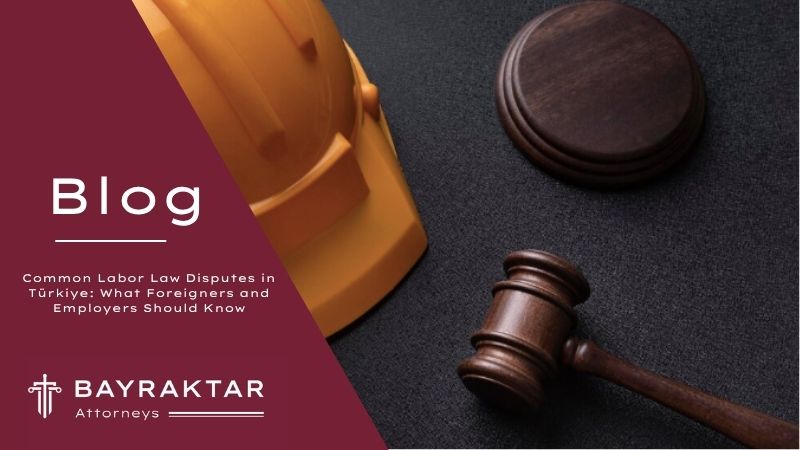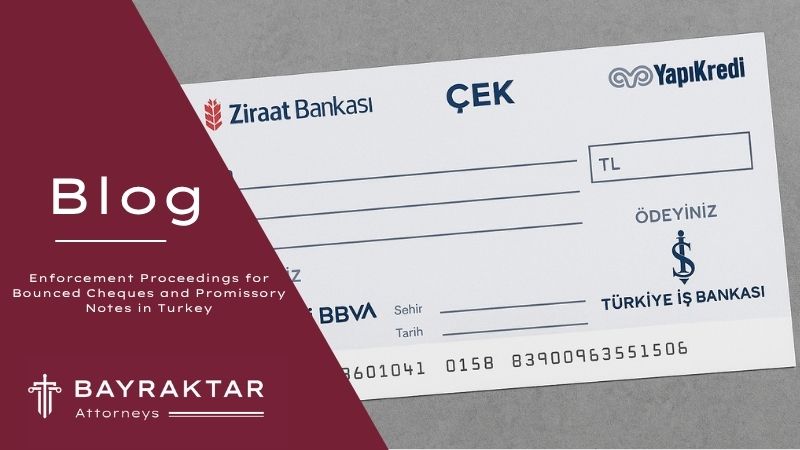
Understanding Türkiye’s Labor Law Framework
Türkiye’s labor law is primarily governed by the Labor Law No. 4857, along with complementary legislation such as the Social Security Law and Occupational Health and Safety regulations. While employment in Türkiye can provide great opportunities for both employers and employees, disputes are not uncommon—particularly in industries with high turnover, such as construction, hospitality, and manufacturing.
Most Frequent Labor Law Disputes in Türkiye
1. Wrongful Termination and Severance Pay
One of the most common disputes is unlawful termination of employment. According to Turkish law, if a worker with more than six months of service is terminated without just cause, they may file a reinstatement lawsuit or claim severance and notice pay.
Employers must provide clear and documented justifications for termination.
Severance pay applies if the employee has worked for at least one year and is dismissed without cause.
2. Unpaid Wages and Overtime
Late or unpaid salaries, including overtime pay, are frequently contested by workers. Employers are required to pay overtime at a rate of 150% of the standard hourly wage unless compensatory time off is granted.
Overtime must not exceed 270 hours per year.
Payment delays can lead to legal interest claims by the employee.
3. Misclassification of Employees
Many employers try to reduce tax and insurance burdens by misclassifying full-time workers as independent contractors or freelancers. This can be challenged in court and often results in retroactive compensation and penalties.
Courts prioritize the true nature of the working relationship, not just the contract label.
4. Mobbing (Workplace Harassment)
Mobbing is increasingly recognized in Türkiye, especially in white-collar workplaces. Psychological harassment or bullying by supervisors or colleagues can lead to legal action and compensation claims under the Turkish Code of Obligations.
Employers must prove they took reasonable steps to prevent harassment in the workplace.
5. Occupational Accidents and Employer Liability
Work-related injuries are taken very seriously. If an employee is injured at work, the employer may be held criminally and financially liable, particularly if safety protocols were not adequately followed.
Employers must ensure insurance coverage and mandatory safety training for all staff.
6. Invalid Non-Compete Clauses
Employers often include broad non-compete clauses in employment contracts. However, Turkish courts will not enforce restrictions that are too wide in scope, duration, or geography.
A valid non-compete must be clearly limited in time (usually 2 years), sector, and location.
How to Prevent Labor Disputes
Draft Clear and Compliant Employment Contracts
A well-written employment agreement is the first line of defense. It should outline job duties, salary, benefits, termination procedures, and conflict resolution steps.
Maintain Detailed Records
Keep signed payroll slips, work schedules, performance evaluations, and termination notices on file in case of a future dispute.
Provide Employee Trainings
Educate employees on their rights and responsibilities, workplace safety, and company policies to prevent miscommunication or legal claims.
Get Legal Assistance Before Terminating
Consulting with a labor lawyer before terminating an employee—especially without cause—can save time and legal expense in the long run.
Bayraktar Attorneys Can Help
At Bayraktar Attorneys, we offer comprehensive legal services in labor law, including:
Drafting and revising employment contracts
Representing employers in labor courts
Advising on lawful termination procedures
Resolving employee disputes through negotiation or litigation
Whether you are a business owner, HR director, or foreign entrepreneur operating in Türkiye, having the right legal partner is essential to protect your company from labor-related risks.
Contact us to learn how we can assist with labor law compliance and conflict resolution in Türkiye.






